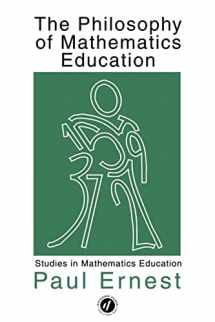
The Philosophy of Mathematics Education (Studies in Mathematics Education)
Book details
Summary
Description
Although many agree that all teaching rests on a theory of knowledge, there has been no in-depth exploration of the implications of the philosophy of mathematics for education. This is Paul Ernest's aim. Building on the work of Lakatos and Wittgenstein it challenges the prevalent notion that mathematical knowledge is certain, absolute and neutral, and offers instead an account of mathematics as a social construction. This has profound educational implications for social issues, including gender, race and multiculturalism; for pedagogy, including investigations and problem solving; and challenges hierarchical views of mathematics, learning and ability. Beyond this, the book offers a well-grounded model of five educational ideologies, each with its own epistemology, values, aims and social group of adherents. An analysis of the impact of these groups on the National Curriculum results in a powerful critique, revealing the questionable assumptions, values and interests upon which it rests. The book finishes on an optimistic note, arguing that pedagogy, left unspecified by the National Curriculum, is the way to achieve the radical aims of educating confident problem posers and solvers who are able to critically evaluate the social uses of mathematics.


We would LOVE it if you could help us and other readers by reviewing the book
Book review



